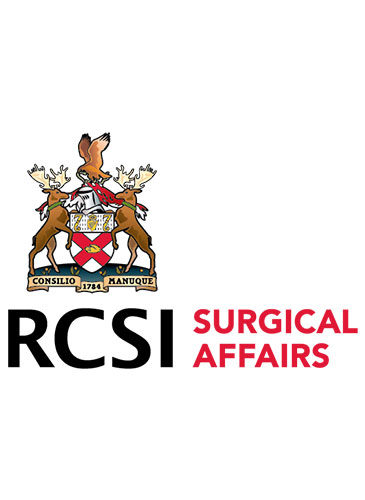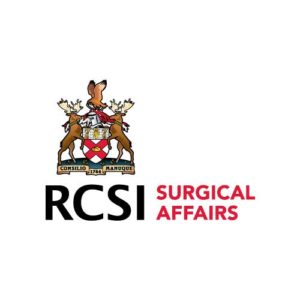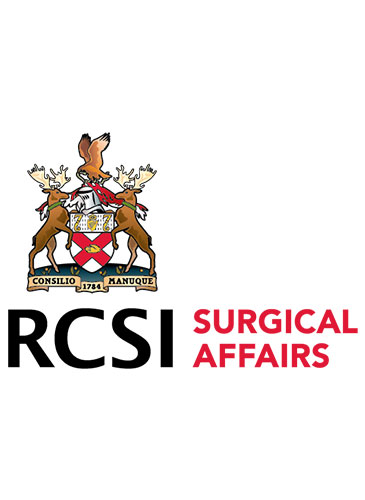
Specialty Administrators in Surgical Affairs
Ophthalmic Surgery
Ophthalmic Surgery
Ophthalmology in the 21st century is an interesting and exciting specialty. It offers the diagnostic dilemmas of a physician as well as the technical challenges of a microscopic surgeon, both against a backdrop of exciting new therapies and innovative technical advances.
Ophthalmology is the branch of medicine that deals with the anatomy, physiology and disease of the eye and visual system. The specialty of ophthalmology in Ireland includes two career structures – medical ophthalmology and surgical ophthalmology.
Type of work
Ophthalmology is a predominantly outpatient based specialty. Surgical ophthalmologists are based in the eye departments of large tertiary-referral hospitals. Medical ophthalmologists can be based in hospitals as well as community clinics. Patients who require follow-up for an going ocular condition are seen in the out-patients department. Ocular conditions can be associated with ageing – cataract, glaucoma or macular degeneration – or may be a symptom of an underlying systemic disease e.g. diabetes, hyperthyroidism, rheumatoid arthritis or multiple sclerosis. For systemic conditions, ophthalmologists work in close collaboration with other specialists including endocrinologists,, rheumatologists, neurologists, ENT and maxillo-facial surgeons as well as paediatricians and geneticists.
Surgical ophthalmologists usually have two surgical sessions per week. Nearly all surgical ophthalmologists perform cataract surgery. Cataracts are the most common cause of reversible blindness and cataract surgery is the most frequent surgical procedure done in Ireland and indeed worldwide. It is usually performed under local anesthesia as a day case. Cataract extraction or phacoemulisfication surgery as it is now called, has undergone many technical advances in the last decade. It requires the surgeon to have both high technical skill and excellent hand eye co-ordination, which takes many years of training to acquire.
Medical Ophthalmologists have subspecialty expertise in the areas of paediatrics, glaucoma and medical retina. In medical retina, new advances in intravitreal treatments and laser have revolutionised the treatment of two common sight-threatening conditions, age-related macular degeneration and diabetic maculopathy. As these conditions are very responsive to the new therapies, the work is very rewarding. Over the next 20 years Ireland will see a significant increase in both older patients and patients with diabetes. Therefore the number of medical ophthalmologists required to treat these patients is also expected to increase. Medical ophthalmologists also provide significant paediatric ophthalmology services both in the community as well as in hospital based clinics.
Although ophthalmology is still primarily a hospital-based specialty this is likely to change, as there is an increasing demand for ophthalmology care to be delivered in treatment centres other than large hospitals. The current strategy for eye care in Ireland is to deliver as much care as possible in the community. This is reflected in the HSE Primary Care Eye Services Report (published June 2017) which provides a blue print for the future delivery of specialist eye care service to both young and old, in so far as possible, in the primary care setting.
This will require a new type of ophthalmologist, a team leader able to specialise in the three most common areas of patient need – paediatric ophthalmology, glaucoma and medical retina – as well as manage a team of technicians, ophthalmic nurses, orthoptists and retinal photographers and to co-ordinate patient care between hospital and community locations.
Both medical and surgical ophthalmologists may have scheduled minor operations, laser and intravitreal injection sessions. As well as spending their working week in the out-patients, laser suites, injection rooms and theatre, ophthalmologists also spend time delivering eye care in a dedicated eye casualty or accident and emergency department. Here patients with ocular trauma such as eyelid lacerations, globe perforations, chemical burns and orbital fractures are seen. Other sight-threatening eye emergencies such as giant cell arteritis as well as vascular conditions (central retinal artery occlusions) and glaucoma emergencies (acute angle closure glaucoma) are also seen. Most consultant surgical ophthalmologists take part in an on-call rota but night work is unusual. Medical ophthalmologists do not perform on call duties.
New innovative techniques for ocular imaging take full advantage of the eye’s transparent media and have contributed considerably to how we practice and deliver eye care today. They help screen and diagnose ocular conditions making ophthalmology an ideal specialty for future tele-medicine advances.
In the last 5 years there have been significant developments in genetics with some of the first genetic treatments and stem cell treatments in medicine being carried out in the specialty of ophthalmology in conditions such as Lebers Congenital Amaurosis and Retinitis Pigmentosa. Ireland has an excellent track record in ophthalmic research in glaucoma, corneal disease and in the genetics of retinal disease. Some of this work is carried out in centres of excellence such as University College Dublin, Trinity College Dublin, Galway University Hospital and the Royal Victoria Eye and Ear Hospital.
- +353 1 402 2166
- roisinscally@rcsi.ie


